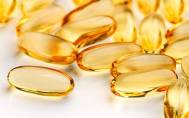 |
|||
Evening Primrose BenefitsThis pages focuses on evening primrose benefits - What are the numerous health benefits of evening primrose oil? Are there any evening primrose
oil side effects? Read on and find out.
What is Evening Primrose OilThe sweet-smelling evening primrose (Oenothera biennis) is a biennial plant that grows from three to nine feet tall. Between June and October, the evening primrose flowers bloom at twilight and wilt by dawn, which is why it is called "evening primrose". Evening primrose oil is extracted from the seeds of the plant.Evening Primrose Benefits Evening primrose is good for you in three ways.
First, evening primrose oil (EPO) is rich in gamma-linolenic acid (GLA), an essential fatty acid. GLAs help to produce compounds that perform important functions such
as regulating brain function, blood flow, gastrointestinal activity, fluid balance, and fat decomposition.
Second, evening primrose leaves are rich in quercetin, which is a bioflavonoid. (Bioflavonoids are not produced by the human body but are found in many leaves, bark, seeds,
and flowers). Bioflavonoids protect blood vessels, aid in circulation, stimulate bile production, and lower cholesterol levels.
Finally, evening primrose seed (not the oil) is a rich source of tryptophan, an amino acid which can be converted by our body into serotonin, a brain chemical, which acts
as a natural mood enhancer and antidepressant.
Top
Evening primrose is good for you in three ways.
First, evening primrose oil (EPO) is rich in gamma-linolenic acid (GLA), an essential fatty acid. GLAs help to produce compounds that perform important functions such
as regulating brain function, blood flow, gastrointestinal activity, fluid balance, and fat decomposition.
Second, evening primrose leaves are rich in quercetin, which is a bioflavonoid. (Bioflavonoids are not produced by the human body but are found in many leaves, bark, seeds,
and flowers). Bioflavonoids protect blood vessels, aid in circulation, stimulate bile production, and lower cholesterol levels.
Finally, evening primrose seed (not the oil) is a rich source of tryptophan, an amino acid which can be converted by our body into serotonin, a brain chemical, which acts
as a natural mood enhancer and antidepressant.
Top
Evening Primrose Health BenefitsEvening primrose benefits are numerous. EPO is good for a variety of conditions, especially those resulting from an imbalance of essential fatty acids, skin irritation and inflammation, or an immune deficiency. Here are some of the evening primrose benefits:
Evening Primrose Benefits - Dosage Evening primrose oil is available in capsules and in liquid form. The usual dosage is about three grams per day for most conditions.
EPO is best taken with food as this will help to ensure adequate absorption of GLA. Other nutrients that are important for the body to utilize the GLA in evening primrose
oil are zinc, vitamin C, B vitamins and magnesium.
Top
Evening primrose oil is available in capsules and in liquid form. The usual dosage is about three grams per day for most conditions.
EPO is best taken with food as this will help to ensure adequate absorption of GLA. Other nutrients that are important for the body to utilize the GLA in evening primrose
oil are zinc, vitamin C, B vitamins and magnesium.
Top
Evening Primrose Oil Side EffectsThere are a lot of evening primrose benefits, but are there any evening primrose oil side effects? Generally speaking, EPO side effects are uncommon but it may cause headaches, nausea, bloating, and abdominal discomfort in a small percentage of people. In addition, schizophrenic patients on phenothiazines (Thorazine) may experience mild breathing difficulties or even increased risk of epilepsy if they take EPO. Finally, if you are pregnant or lactating, it is always advisable to consult your doctor before taking EPO or any other herbal or nutritional supplements.References Balch and Stengler, Prescription for Natural Cures, (John Wiley & Sons, Inc., 2004). Duke, J.A., Dr. Duke's Essential Herbs, (Rodale Books, 2000). TOP of Evening Primrose Benefits |
|
||
|
Then why not use the button below, to add us to your favorite bookmarking service? |
|||
|
| Contact Us | Privacy Policy | It is not intended to replace the advice and treatment of a professional medical practitioner. |
|||
|
| |||
